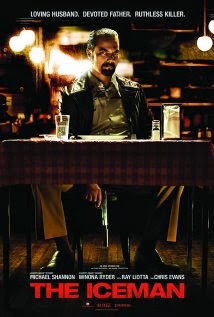The Bling Ring (2013) 2/5
Directed by Sofia Coppola
Israel Broussard, Katie Chang
In this film which is based on a true story, a group of high-school students burglarize the homes of various celebrities and use the money gathered to live a life of excess. Marc (Israel Broussard) is a new student who finds a friend in Rebecca (Katie Chang), a girl who has a penchant for burglary. As the two get bolder in their crimes, they bring along a group of friends as they steal from the rich and famous.
The plot of the film seems promising, but without any major conflicts occurring until near the end, one is never truly in suspense. The film moves forward in a predictable manner, relying perhaps too much on the true story, as no tension arises other than the potential to be caught, and even that is not suspenseful as the film opens with a series of interviews with the characters after being caught; In seeing the end of the film, the only place to derive suspense is the journey there, but the journey there is not interesting enough. Ultimately, the film moves exactly as one would expect, without much cause for surprise.
Thematically, the film seems to focus on the superficiality of the modern day, as well as the celebrity-obsessed culture of contemporary North America. The characters live a life of crime, drugs, and loose morals, without significant consequence for their actions: even after being arrested for their crimes, we see the characters becoming celebrities in their own right, rewarding them for their immoral lifestyle. This message may have had some impact, had one of the characters not stated it outright near the end of the film. In telling the audience what the film is about rather than simply presenting the case, the themes have no real need for elaboration.
Visually, the film has a few interesting shots (particularly during one of the burglaries, in which the entire scene takes place as a single long shot of the entire house), but relies mainly on well-practiced techniques that lie somewhere between standard and overused. Particularly bothersome to see yet again is the “surprise” car accident, shot from the front passenger’s window looking towards the driver’s window, so that headlights become suddenly visible as the vehicle is hit. Otherwise, the film is shot properly, but without much innovation.
The Performances in the film range from uninteresting to ridiculous, though one might say it is not the fault of the actors, but the dialogue they’ve been given. The actors seem to be confined to cliché “teenspeak”, and intentionally so; such is the problem of making a film whose chief concern is superficiality. In trying to convey how shallow the world is, the characters are only allowed to come across as shallow. Particularly disappointing is that Emma Watson has a chance to demonstrate her rather impressive American accent, but it is squandered on dialogue that does not allow for depth of emotion. At some points, the dialogue is shallow to the point where it may actually resemble real discussions of a superficial nature, but that realism seems inappropriate for what should be carefully crafted film dialogue.
Overall, the film is a valiant effort to speak on the superficiality of our culture, but the themes act as a drawback as they do not allow for any sort of depth. This, combined with a story whose presentation lacks tension and cinematography that does not strive for anything exceptional, makes this film watchable, but not terribly interesting.


